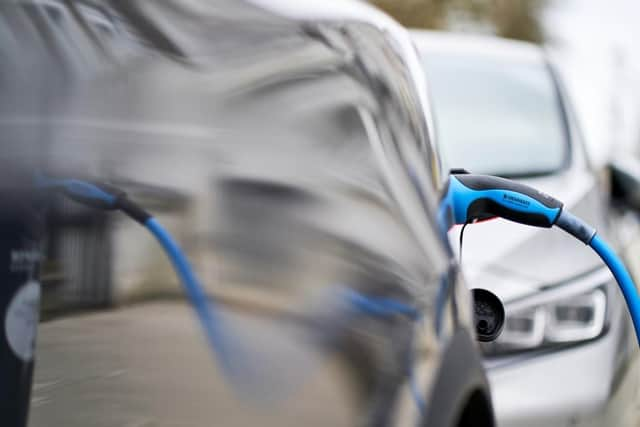How green is Mid Sussex? A look at the district’s progress ahead of the Cop26 climate talks
and live on Freeview channel 276
Its long-awaited net zero strategy, outlining plans to meet legal targets to end its contribution to climate change by 2050, has been published ahead of crucial UN Cop26 climate talks in Glasgow.
Among the key policies are an expansion of the electric vehicle network and new measures to encourage renewable heating in homes.
Advertisement
Hide AdAdvertisement
Hide AdWe’ve taken a look at the progress made on green initiatives in Mid Sussex so far.


Electric vehicle charging
The Government’s net zero strategy included an announcement of £620 million for electric vehicle grants to support the rollout of charging infrastructure nationally.
Figures show Mid Sussex is behind many other parts of Great Britain with the pace of its EV charging point rollout.
Statistics from the Department for Transport show there were 36 public charging points in the area at the start of October – up from 33 a year before.
Advertisement
Hide AdAdvertisement
Hide AdBut at a rate of 24 per 100,000 people, this is well below the UK average, of 39.
Since October 2019 – when figures began at local authority level – the number of devices in Mid Sussex has risen by 15.
Across the UK, an additional 10,800 devices were made available over the same period, taking the total number to 25,900 by October.
Renewable heating
Households will also be able to benefit from £5,000 government grants to install low-carbon heating systems as part of plans to cut emissions from homes.
Advertisement
Hide AdAdvertisement
Hide AdThe £450 million Boiler Upgrade Scheme – which opens from April next year – will help homeowners to swap their gas boiler for a more efficient air source heat pump.
It will launch at the same time as a similar programme, the Renewable Heat Incentive, closes to new applicants.
People who join the domestic version of the RHI receive quarterly payments for the amount of clean, green renewable heat it is estimated their system produces.
Data from the Department for Business, Energy and Industrial Strategy shows 94,000 renewable heating systems had been installed across Great Britain through RHI by the end of September – 15% more than September 2020.
Advertisement
Hide AdAdvertisement
Hide AdOf these, 230 have been installed in Mid Sussex, helping to pay for 15,644 megawatts per hour of energy.
That is an increase of 24 per cent on the 186 systems installed by September last year, meaning Mid Sussex is moving at a faster pace than the national average.
An extension to the Energy Company Obligation scheme, which aims to reduce carbon emissions and help people at risk of fuel poverty by making energy firms install heat-saving measures, has also been announced.
BEIS data shows 2.3 million homes across Great Britain had been fitted with ECO measures by the end of June – with 2,790 of these in Mid Sussex.
Advertisement
Hide AdAdvertisement
Hide AdThe net zero plans also include other multi-million pound investments to develop new clean technologies, help green hydrogen projects get off the ground and create woodland.
Officials insisted the strategy will deliver on commitments to cut greenhouse gases by 68 per cent by 2030.
Prime Minister Boris Johnson said: “The UK’s path to ending our contribution to climate change will be paved with well-paid jobs, billions in investment and thriving green industries, powering our green industrial revolution across the country.”
But Rebecca Newsom, Greenpeace UK’s head of politics, said the plans are “more like a pick and mix than the substantial meal that we need to reach net zero”, and ignore the need to reduce meat and dairy consumption.